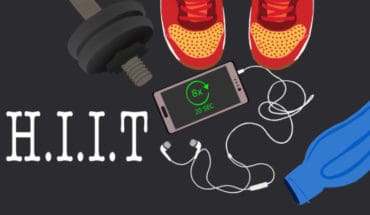As shops reopen, a Priory specialist talks about the changing face of shopping – and why, for some, ‘shopping addiction’ won’t have gone away:
- Compulsive buying disorder (CBD) or ‘oniomania’ is believed to affect 8-16% of the UK population
- Any addiction – including shopping addiction – is a way of changing or avoiding emotions, says expert
- Some people who are prone to compulsive shopping will have learned to curb impulses during lockdown, while for others, the isolation and access to online stores, apps and home delivery will have exacerbated them
- ‘As we start to move out of the Covid-19 lockdown, there is the potential to trip into a euphoric rush’ says Pamela Roberts
As shops reopen, there will be a huge sigh of relief from hard-pressed retailers, frustrated consumers, and a government anxious to kick-start the economy.
Retail spending on credit and debit cards bounced 79 per cent in New Zealand in May, compared to April, as shoppers stocked up on food, furniture, clothing, and electrical appliances after the re-opening of non-essential stores. In Australia there were reports of ‘Christmas crowds’ as shops reopened, although this was linked with concerns about lack of social distancing.
But will shopping habits in the UK have changed? For those concerned about the easing of lockdown, and an unstable economy, there may be less of an inclination to spend, let alone spend freely.
Others may have decided their lives were too prone to consumerism, and now want to hold back on all but essential purchases, with only the very occasional luxury item thrown in.
Many may feel they want to support their independent shops more, turning their backs on the major corporates, and focus on sustainable consumption.
However, there remain others for whom the ability to shop – and shop compulsively – can affect their entire lives. Shopping addiction is when you can no longer deny that you are out of control with your shopping, says Pamela Roberts, and it can lead to serious debt and dysfunction.
Pamela is addiction therapy manager at Priory’s Woking Hospital. She says: “In lockdown, shopping suddenly became a ritualised 
“For the moderate or heavy-spending shopper, this is probably true, evidenced amidst the sale of cars plummeting for example, and the fashion and beauty industry grinding to a halt. And with less disposable income, shoppers are likely to be more conscious of how they spend, concerns over the financial future surely enough to curb spending.
“The lockdown shut the shops, possibly changing the face of the High Street forever.
“But deliveries continued, and as we start to move out of the Covid-19 lockdown there is the potential to trip into a euphoric rush: no more silent and lone shopping online, waiting for deliveries, but instead the buzz of shops and people, and the gratification of instantly ‘having’ although people must and should adhere to social distancing guidelines.
”For anyone who has ever experienced the lure of addiction, they’ll know that all rational thinking and reasoning is overpowered when ‘consumed by a shaming hunger, a need beyond control’ as described by Sigrid Rausing in her memoir Mayhem as she observes addiction ravage her family. Even a lockdown isn’t powerful enough to outdo addiction, and inadvertently delivery drivers become the ‘runners’.”
So what keeps the shopping addict addicted? Pamela says: “Retailers’ engagement teams keep shoppers, guess what, engaged online. There aren’t the same rich cues when shopping online, or the ability to touch and feel the goods, so marketeers have to work a bit harder with virtual and 3D techniques to really draw on the fertile imagination. There’s lots of marketing research into gender nuances to keep everyone engaged with shopping. It’s believed that a small percentage of the world’s population are of an addictive nature, so for the majority these engagement strategies are manageable. For the addictive individual however, it’s a potential minefield.
Comfort shoppers
“Comfort shoppers, as they are called by the retailers, have been keeping the digital carts busy,” says Pamela “For those who are addicted, shopping is the medicine – usually a temporary comfort from stress, anxiety, loneliness, and fear for example, chased closely by guilt and shame. This then needs ‘comforting’ with more shopping ‘medicine’. Addiction is a vicious cycle.
“Stepping away from shopping addiction requires firstly figuring out whether you have the problem. If you honestly answer ‘yes’ to any of the following questions, Shopaholics Anonymous suggests you may have an addiction:
- Do you shop when you feel angry or disappointed?
- Has overspending created problems in your life?
- Do you have conflicts with loved ones about your need to shop?
- While shopping, do you feel euphoric rushes or anxiety?
- After shopping, do you feel like you have just finished doing something wild or dangerous?
- After shopping, do you ever feel ashamed, guilty or embarrassed about what you have done?
- Do you frequently buy things that you never end up using or wearing?
- Do you think about money almost all the time?
“Attempts to stop shopping will cause many people addicted to shopping to experience withdrawal symptoms, not dissimilar to the withdrawals a person will have when addicted to alcohol or drugs.
“It is such a surprise to learn that withdrawals are not just about a physical dependence to a substance. Psychological withdrawals are often more subtle but equally overwhelming. Of course, withdrawals vary from person to person and are often noticed as a feeling of irritability, depression.”
Helping yourself
“If you know you have a problem with shopping addiction and understanding that there will be withdrawals, a next good step is getting help,” says Pamela. “It’s a good idea to remove shopping apps but of course any ‘good addict’ knows these can simply be downloaded again. It will require determination, in your most desperate moments
- Pay attention to your relationship with money. Sometimes this is intertwined with generational financial legacies, attitudes and experiences with money that are passed through the family line. Identifying patterns of behaviour and beliefs won’t cure the addiction but it can help in understanding some of the potential underlying monetary matters
- Consider how you handled money in childhood, and the financial circumstances of the family. How was money regarded and managed? What were the influences towards money from grandparents or older generations?
- It’s impossible for someone addicted to shopping to stop shopping completely, and hoarding and deprivation are simply the other extreme. So, recovery involves starting to pay attention to finances, keep an eye on expenditure, and create a spending plan. In this way instead of indulging or depriving, a plan helps to determine what’s affordable, what’s necessary. It enables you to make choices rather than spend uncontrollably
- Stop using your credit card. Rather than try to do this alone, (addiction, after all, is isolating), seek out some support. There are self-help groups where it’s possible to find out how other people manage the need for comfort through shopping. There are also people who understand without judgment. These can often be people where you can remain honest and accountable – going underground simply keeps the need to escape alive and strong
“Recovery from any addiction, including shopping addiction, is never going to be straight line,” says Pamela. “This is a process of learning and change. It does require a change of thinking and attitude which not only takes time but also requires help. This does require active engagement with the process of change, it doesn’t just happen. It’s not easy; hence the self-help groups can bolster the changes especially when the temptation to shop is strong. And it will be. It’s not impossible, however, to overcome this with the right help.”
- New lipid-based pathway discovered as key to memory formation - 25th June 2025
- Crucial link could explain how Alzheimer’s takes hold - 25th June 2025
- Understanding Your Mind Can Improve Daily Life - 25th June 2025






